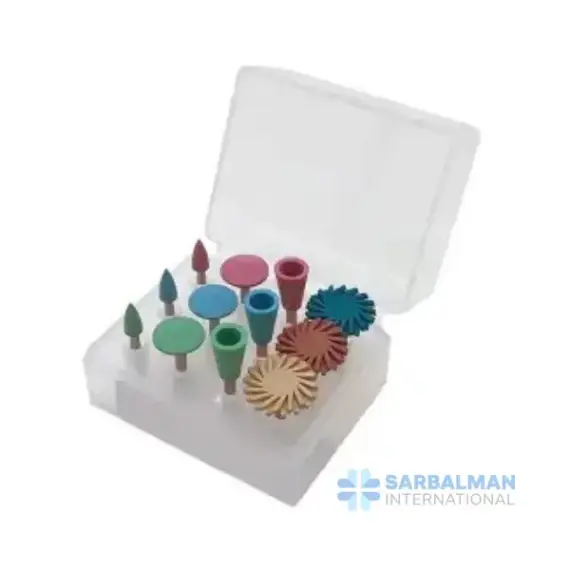Composite Polishing Kit
Free!
The composite polishing kit is a multi-step system for finishing and shining resin restorations. Color-coded polishers in varied shapes fit a latch-type contra-angle and reach both flat and contoured surfaces. Use it to refine anatomy, smooth margins, and achieve a glossy, stain-resistant finish on microhybrid and nanohybrid composites. Fast, predictable, and ideal for daily anterior and posterior cases.
Description
A composite polishing kit is a chairside set of finishing and polishing instruments designed for direct resin restorations. It usually combines multi-step polishers in different shapes, so you can contour, smooth, and bring microhybrid or nanohybrid composites to a glassy shine. The points and cups mount on a standard latch-type contra-angle and are color coded by grit for simple step-by-step use. Spiral wheels and discs help you preserve anatomy and reach difficult grooves without flattening cusps.
Key features and benefits
• Multi-grit sequence for controlled reduction, smoothing, and final gloss
• Assorted shapes (points, cups, discs, spiral wheels) for anterior and posterior access
• Pre-impregnated polishing surfaces that cut efficiently with light pressure
• Color coding guides the workflow and reduces chairside guesswork
• Compatible with most latch-type low-speed handpieces
• Delivers dense, stain-resistant luster that blends margins and reduces plaque retention
Typical uses and applications
• Finishing Class I, II, III, IV, and V composite restorations
• Refining proximal contours and contact areas after adjustment
• Smoothing margins around cervical lesions and occlusal anatomy
• Polishing composites around orthodontic attachments and provisional repairs
How it compares
• Versus discs alone: better access to occlusal grooves and concavities with less risk of creating flat planes.
• Versus diamond paste alone: faster surface refinement and fewer steps to reach a high gloss; paste can be added for a super-shine when desired.
• Versus single-shape kits: more shapes reduce instrument changes and improve control in tight areas.
Best practice tips
Use light, intermittent pressure at low speed. Progress from coarse to fine. Rinse between steps. Follow the manufacturer’s guidance on single-patient or reusable use to meet infection-control standards.




